On Teacher's Day today (5 September), we go back in time to learn about the contributions of some famous Indian teachers to society.
In ancient era, only scholars who had devoted years of research and learning into a particular subject were allowed to impart knowledge from one generation to the next.
Realising their importance, here are the profiles of the most influential Indian teachers from the past.
Chanakya (370 BCE - 283 BCE)
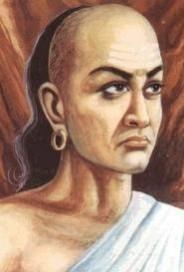
Chanakya or Kautilya is the first famous Indian scholar who was a professor of political science and economics at the Takshila University (in the Punjab province of Pakistan). He earned his education from the same ancient university where he later became an Acharya (teacher). He authored two famous books on political thesis Arthshastra and Neetishastra. Kautilya played an important role in establishing the first ever-recorded dynasty in India - the Maurya Empire. In popular texts he found a worthy successor in Chandragupta Maurya and helped him overthrow King Dhana Nanda. He was chief advisor to both Chandragupta and his son Bindusara.
Aryabhata (476-550 AD)
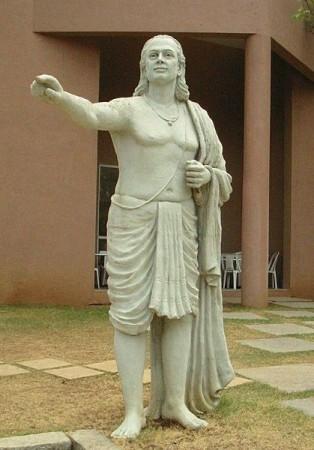
The great mathematician and astronomer was the head of an educational institute at Pataliputra (Patna, Bihar), where he went for his advanced level studies. It is also believed Aryabhata was the principal head at Nalanda University later in his life. He is commonly known as the 'inventor of zero'. He had an observatory, to study terrestrial or celestial events, at both places. His works on mathematics have survived the test of time, especially the ones discussed in Aryabhatiya and Arya-Siddhanta on trigonometry, algebra and arithmetic.
Mahavira (800AD)
Mahavira was another great mathematician during the 9th century in India. He is also known as 'Mahavira the Teacher'. He improved methods of dealing with algebra that Aryabhata had presented in his Aryabhatiya. His book "Ganitasarasangraha" (Compendium of the Essence of Mathematics) was entirely dedicated to the concepts of mathematics. It comprises of more than 1,130 rules and examples divided in nine chapters. The chapters discuss basic operations like the reductions of fractions, miscellaneous problems involving a linear or quadratic equation with one unknown, geometric computations with plane figures, and similar right-angled triangles.
Savitribai Phule (1831-1897)
Savitribai Jyotirao Phule was the first female teacher of the first women's school in India. She started a school for girls along with her husband in 1948. She is also considered as a social reformer. She was regularly abused on her way to the school, for her efforts in educating women. Rotten eggs, cow dung, tomatoes and stones were hurled at her.
By the end of 1948 she had opened five more schools for girls in the Brahim-dominated society of Pune. Phule also dealt with social issues such as widow remarriages and untouchability.
Rabindranath Tagore (1861-1941)
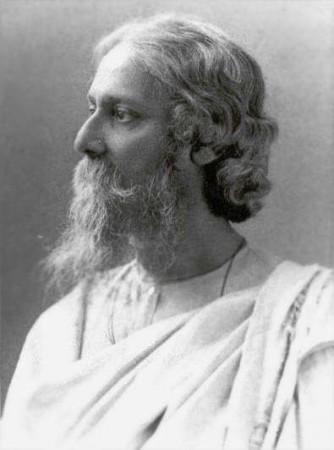
Tagore has his legacy, which has lasted till date, to speak for him. He is one of the most revered figures in India.
He reinvented the concept of 'gurukul' when he took teaching out of the confined walls of a classroom and a fully-formed school. He personally mentored students at Visva Bharti school, which is a university at Shantiniketan in Bengal. Pupils were taught under the trees. He invested even his Nobel Prize money along with his time to build and maintain the school.
Premchand (1880-1936)
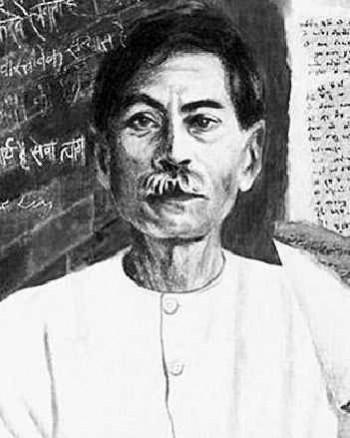
Premchand is known for his contribution to modern Hindustani literature. But the writer was also a teacher once. In 1899, the headmaster of a school in Chunar (Uttar Pradesh) offered him a teacher's position. He taught at several other government schools in Uttar Pradesh. He was influenced by the teachings of Swami Vivekananda.
Rambhau Kundgolkar (1886-1952)
Kundgolkar, better known as Sawai Gandharva, was the teacher of some of the great Indian singers like Pt Bhimsen Joshi and Gangubai Hangal. He was the disciple of Ustad Abdul Karim Khan, who is considered to be the founder of the Kirana Gharana.
When the Ustad got to know that Ghandharva wanted to learn music from him, Khan invited the man to join him on only one condition. Gandharva would have to spend eight years under him to learn Hindustani music, to which he agreed. But he never completed the education and became a stage singer. Since 1936, Sawai started teaching music in between odd jobs.
Dr Sarvepalli Radhakrishnan (1888-1975)
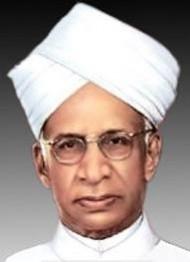
Radhakrishnan, the first vice-president of independent India, is always considered as a teacher first. He is the man whose birthday is celebrated as Teachers' Day in India.
He began his teaching career at Madras Presidency College. He became a professor of Philosophy at the University of Mysore. He would frequently represent the University of Calcutta at international congresses in the UK and the US and even gave a lecture at Oxford on Comparative Religion.
When some of his students asked him if they could celebrate his birthday he replied, "Instead of celebrating my birthday, it would be my proud privilege if 5 September is observed as Teachers' Day."













